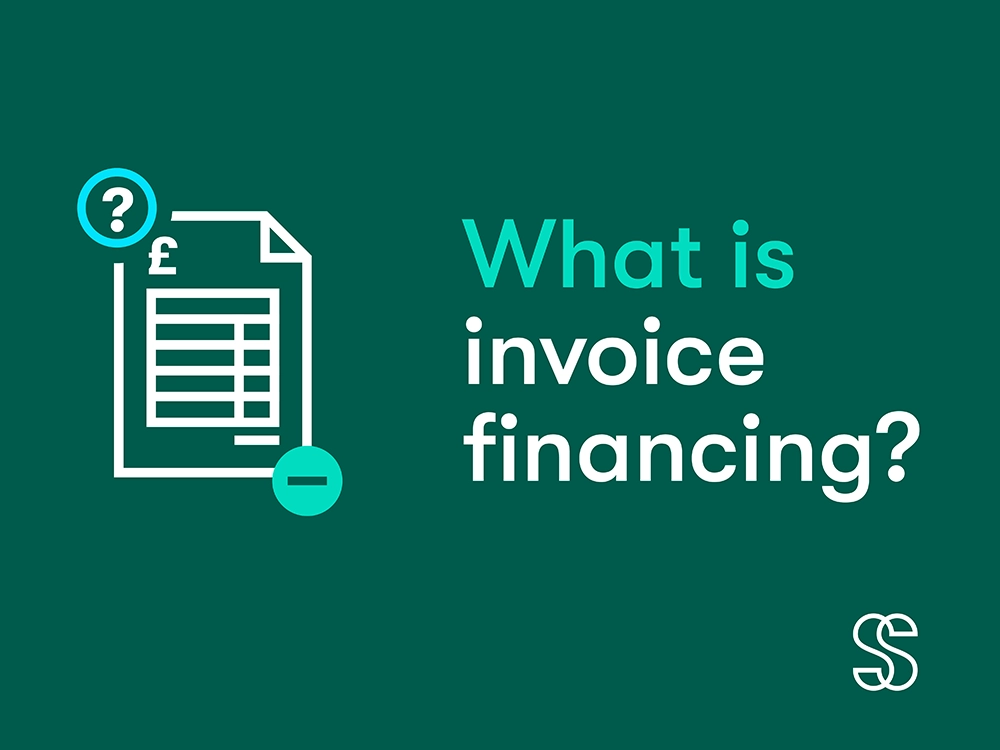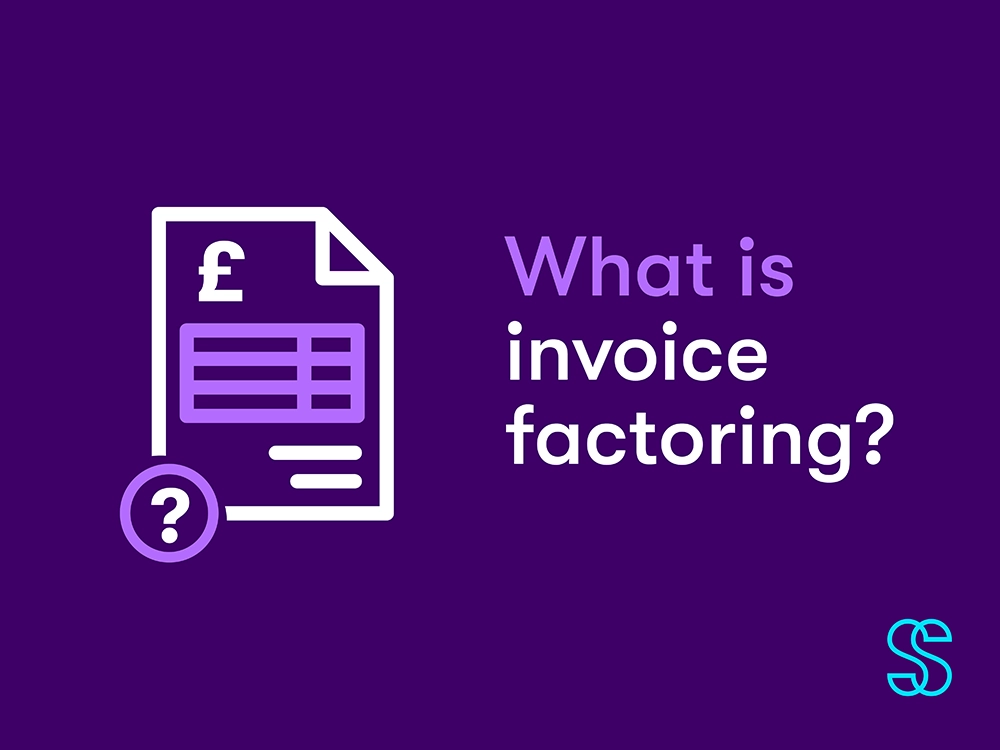21 invoice finance costs you can avoid
(Updated in September 2023)
Agencies that turn to the banks for invoice finance will spend a minimum of £3,000 – £15,000 just to have a facility in place. Countless invoice finance providers advertise their invoice factoring and discounting products as the ultimate finance tools designed to free up working capital. But, as with most business loan offerings, you must read between the lines. As the saying goes, the devil’s in the details.
Businesses who take out invoice finance facilities grow faster than industry average. At Sonovate, our data shows that recruitment agencies who have us as their first funder grow 3 times faster than their peers. Further research from Sonovate reveals that 37% of agencies who started in 2012 but did not have funding were still operational by 2022, whereas 73% of those who started during the same year but had funding facilities in place were still operational by 2022.
If You Intend on Placing Contractors, You’ll Need Finance
You’ll either have extremely deep pockets, or an invoice finance facility such as Sonovate to bridge the shortfall between paying contractors on a regular cycle, and being paid by clients at a later date.
Typically turning to off-the-shelf business finance products, agencies shop around for the lowest service fee or the simplest package. Unfortunately, this leads them to overlook the moving price tag of traditional financiers just to maintain their business cash flow.
Stepping away from traditional lending products such as overdrafts and loans can seem unnerving. Many take the leap into invoice finance because the borrowed money is tied up. In these cases, they’re simply unlocking the outstanding invoice amount as instant cash for their business.
But the reality is that low invoice financing fees are the tip of the iceberg. They only mask a payment term here and a discount charge there, adding up to a host of additional costs. It starts with a tiny fee for factoring a single invoice, but once you add everything up, the additional costs and minimum thresholds can strangle your agency’s cash flow and the headroom you need to grow.
Although knowing the factoring agreement won’t drown your business in debt, especially compared to most business loan offerings, it can unearth a number of hidden costs.
Dig a little deeper and you start uncovering a range of conditions affecting your invoice factoring costs:
- The cost to set up a facility.
- The minimum amount you are required to borrow against invoices.
- The charges to request an extension of your borrowing limits.
- The associated costs and interest that are pushed under the rug.
- The cost to leave.
Continue digging and you unearth a web of costs for:
- Auditing.
- Refactoring.
- Legal letters and stationery.
Yes, your invoice factoring company may even charge you for the ink used to write legal letters!
Imagine it as a private club with a low membership fee. It looks great on paper until you realise that you still have to pay for entry, seating, the cloakroom, table service, and nearly break the bank buying drinks.
Many businesses who were originally enticed by invoice funding options, unfortunately realise further down the road that the chosen financier didn’t align with their objectives. Moreover, once the contract is signed, it’s usually too late to simply opt out. Suddenly, the invoice finance provider exposes a range of hidden costs.
What Is Invoice Financing?
Nowadays, many of us pay for groceries with our smartphones. But we all know that originally, a bank bill confirmed that you had gold in a bank vault. Based on that same logic, an invoice you issue to a client confirms a value – the money they owe you for your services. The problem? Research from Sonovate revealed that the average recruitment agency is already owed in excess of
Basically, it applies the same logic your bank did back when people brought in their gold bars. Except you’ll hand over your unpaid invoices to an invoice financing company. Once they’ve confirmed that your claim is legitimate, they’ll immediately pay out the money your clients owe you. With Sonovate, you get same-day or next-day payments of up to 100% of your invoice value.
This frees up time you’d otherwise spend chasing clients. It also gives you the means to pay your own employees, rent, or another invoice – in which case you’ve broken the cycle and made a contractor’s day. For small to medium-sized enterprises and startups, this can mean the difference between reliable cash flow for work they already delivered and hearing why they don’t qualify for a traditional loan.
Traditional Invoice Finance Base Costs
On the surface, a traditional invoice financier will present some or all of the below factoring fees to your agency.
Setup fee
The initial cost to set up the facility will vary depending on the size of your book and the work involved. It can range from £500 among smaller firms up into the thousands for established agencies.
Service fee
A rolling usage fee that is dependent on the level and value of invoices being sent. It’s usually taken as a fixed percentage of the projected turnover put forward in the agency’s business plan.
Bad debt protection
An invoice finance facility needs to safeguard themselves against the possibility of the invoice payee becoming insolvent or reneging on a payment.
This is almost always an additional cost, so you’ll want to clarify if it’s included in the service fee along with credit control, or as a stand-alone cost.
Discount charge/debtor day charge/interest
It can go by several names but works the same way as bank interest usually would and is calculated as a small daily percentage of your base rate. Essentially, you’re being charged interest on the amount you borrow against your invoice value.
As it’s anchored to your debtor days, an agency waiting 60 days on 3% would typically incur just over £10k in interest a year.
Additional Invoice Finance Cost in Traditional Solutions
Presented by traditional financiers as additional fees, the below are in fact also a requirement to access their funding.
Annual review charge
After 12 months, your invoice finance provider may charge your agency a continuation fee just to maintain the facility. This is typically around 1% of the assigned turnover.
Review limit increase
A lot of financiers will charge agencies just to consider extending their limits, with an additional cost for actually increasing it.
Financiers will usually charge 1 – 2% on the amount they’re increasing the facility by, and employ charges on any domestic checks they may have to pay for credit limits.
Legal letters
Any legal correspondence sent to clients or yourself will be billed, along with the stationary costs to write them.
Collection fee
If your agency goes insolvent, you’ll see an additional cost to collect on all the invoices from the sales ledger.
Refactoring costs
When an invoice goes unpaid for over 60 days or the agreed time limit, financiers will either shift the invoice back to the agency to chase or charge a higher cost to retrieve the late invoice.
Bear in mind that, over the 60 days, financiers that charge interest will be profiting from the money the financier has advanced to bridge the cash flow gap.
Audit charge
Financiers will often need to place a seal of approval over an agency’s financial security and their intentions for the funds before lending to them.
An audit will usually cost around £500, with further costs for every client that requests written proof of the inspection.
Overseas checks
If you have international clients, you can pay varying costs on credit checks and controls that are incurred. Traditional financiers are often deeply reluctant to fund internationally as they’re heavily risk-averse.
Same-day transfer charge
Financiers will charge a fast track payment when agencies need to respond to urgent requests from candidates to be paid, especially if they’re outside of working hours. CHAPS payments usually cost around £16 for a financier to do themselves, so any additional cost is a profitable charge that financiers are imposing.
Amendment to security
Your agency may be required to provide additional legal security to support the facility. Traditional financiers are heavily risk averse and usually demand personal guarantees and as many safeguards, they can level on the finance.
Retrospective fee/take-on fee
An invariable cost that flies under the radar with most financiers. Agencies that are transferring their invoice debtor book from one financier to another will encounter a transfer fee to facilitate the move.
This is usually the cost of your service fee and will be additional to the service charge you paid to your old financier.
Arrangement fee/document fee
Covers the cost of due diligence on your clients and can vary depending on the level of investigation needed.
Some financiers may waive its enforcement, whilst others can insist on a cost anywhere from £250 to £5,000.
Financiers will usually charge 1 – 2% on the amount they’re increasing the facility by.
Traditional Invoice Finance Additional Charges
Additional charges cover everything from not using their funding to moving financiers, restricting the direction your business wants to go in.
Minimum usage charge/non-utilisation fee
On top of paying to set up and being charged for its upkeep, you can also encounter a charge for not meeting the minimum amount you must fund.
Regardless of its use, or no use at all, agencies will usually pay £3–15k a year as a minimum threshold.
Breach charge
For every infringement of your arrangement, there will be a standard charge. This could be anything from failing to fund all your clients through the financier to incorrect payments, using other financiers, or improper use of the money drawn down to pay contractors.
Personal guarantee liability
Most financiers will force agencies to submit a personal guarantee against the money they’re borrowing. This is usually up to 20% of the finance borrowed that individuals are personally liable to cover. This ties your personal finances into the fate of the company and carries some risk.
Early exit charge
The majority of financiers will have a minimum notice period of three months to a year, with a charge for early exits.
This is usually calculated one of two ways; they can either take the average amount your agency is advanced per month and pro rata that for the rest of your minimum contract, or, charge your minimum usage fee for the year.
Traditional financiers will usually opt for whichever amounts to more, but as with any negotiation, there’s wiggle room.
Unassigned invoices charge
For every invoice that’s left unassigned, traditional financiers will charge you.
Transaction handling charge
Customer payments made by credit and debit cards incur a charge.
What Are Your Invoice Financing Options?
Not all invoice factoring providers end up breaking the bank, however it’s all about finding the right fit for your business.
At Sonovate, we have crafted simple finance for the new working world. We’ve broken down the core ingredients to financing a range of businesses and moulded them into two types of products; Funding, and, Funding and back-office.
What’s Included in Funding?
Our platform is especially designed for growth and enterprise businesses like yours. Built for fast, flexible finance for your global contingent workforce. Fully integrate with your accounting system, instantly sync and fund your invoices, and automate financial reporting.
- We offer transparent pricing — no hidden fees.
- We give you funding of up to 100% – boosting cash flow and giving you peace of mind.
- We offer 95% bad debt protection as standard.
- We fund in multiple currencies and countries.
- We provide a model that enables your recruitment agency to grow.
- Our technology streamlines credit control, KYC and AML checks to simplify your operations.
What’s Included in Funding and Back-Office?
Picture all of the above, plus:
Simple and easy-to-use tech, with our in-house team managing all the admin. We’ll take care of everything from credit control and checks, invoicing clients, collecting payments, paying you and your contractors on time, as well as providing a timesheet and expenses app.
- Middle and back office automation and management.
- An industry-leading cloud platform.
- Automated online timesheet management and tracking.
- An app for your candidates and clients to easily manage the timesheet process.
- Tech-enabled credit control and AML processes.
- Seamless reconciliation with your accountancy software.
- An expert customer success team.
We provide something that traditional financial providers don’t. The financial security and confidence your business needs — for just one fee.
See how we compare to other invoice factoring providers for fees, finance tech, and support. Additionally, if you have any questions or would like to find out more about our services, request a quote.








